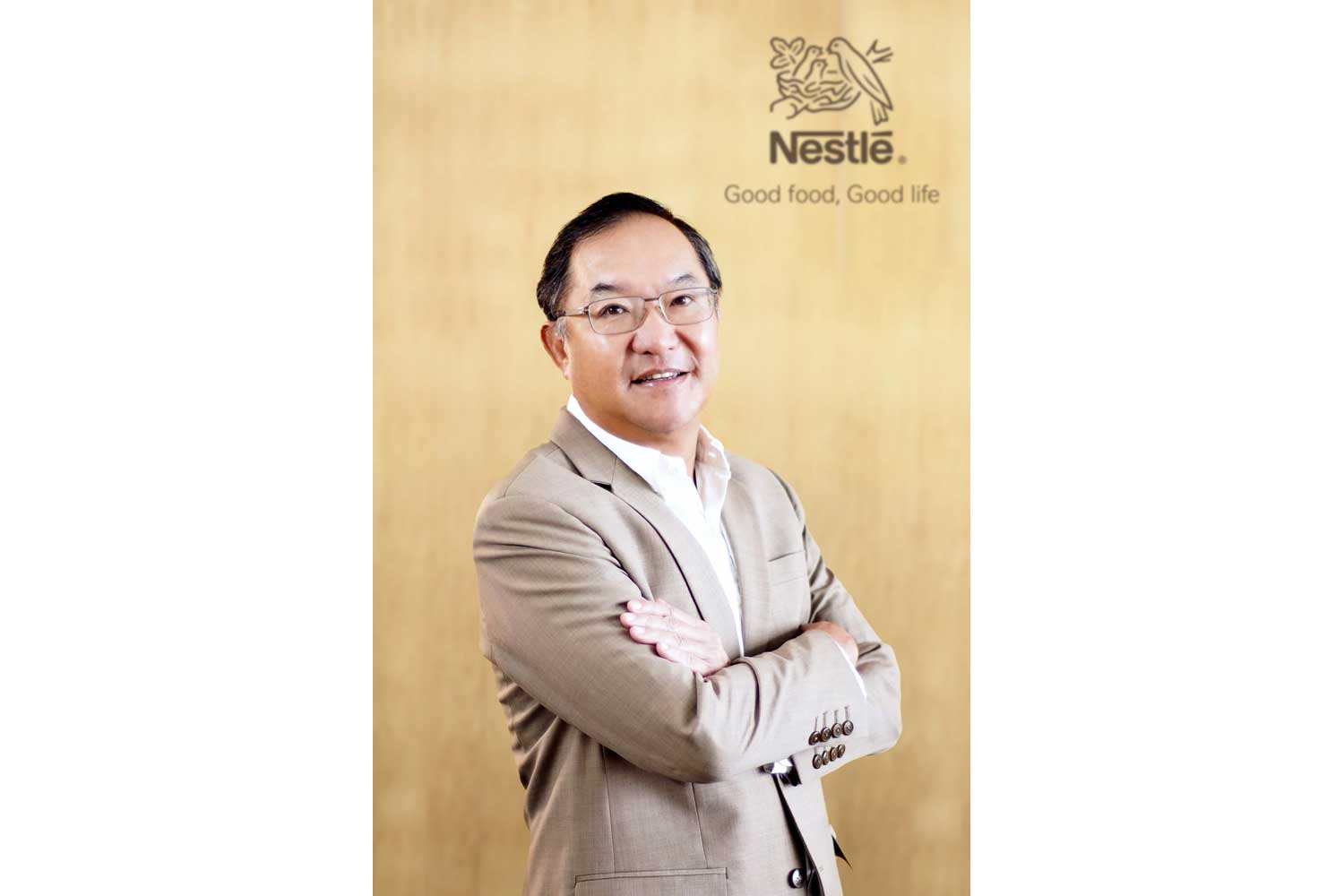
Reflects Nestlé’s Global Promise to Accelerate Transition to a Regenerative Food System
Nestlé Thailand today announced its roadmap to reach Net Zero greenhouse gas emissions by 2050. The plan, which focuses on four key pillars, will also help accelerate the transition to a regenerative food system. Nestlé is determined to play a leading role in tackling climate change.
“We must tackle this situation urgently. This is why Nestlé has established a sustainability roadmap. We will take concrete actions throughout our value chain to ensure sustainable food production to create a better Thailand and a better world for future generations,” said Mr. Victor Seah, Chairman & CEO of Nestlé Indochina.

Pillar 1: Sustainable Packaging - Nestlé Thailand is committed to Nestlé’s global ambition to have 100% of its packaging designed for recycling by 2025. Already in Thailand, 90% of its packaging is designed for recycling. Nestlé Thailand will also reduce the amount of virgin plastic the company uses by one-third by 2025.
These pledges have already been backed up with actions. Over 500 million plastic straws have been replaced with paper straws in 2021. Nestlé has also redesigned its plastic sachets to make them easier to recycle with an innovative monostructure packaging. Nestlé will save 470 tons of virgin plastic this year with these and other initiatives including replacing plastic bags for sachets with paper ones, wrapping its ice creams in the first-ever paper wrapper without any plastic coating, and reducing the amount of plastic in water bottles and shrink film. Also, NESCAFÉ Ready-To-Drink cans are now 100% aluminum which is fully recyclable in Thailand.
Pillar 2: Water Stewardship - Nestlé Thailand will continue to improve the water efficiency of its factories. Compared to 2018, the amount of water used per ton of product has been reduced by 4.8%. The company will also continue to take care of water resources sustainably in the surrounding communities. The Youth Water Guardian program in Ayutthaya province has made a positive impact on the lives of people in 13 villages in the area. A survey in collaboration with Phranakhon Si Ayutthaya Rajabhat University found improved water quality and local residents now consume an incremental amount of up to 1.2 million cubic meters of the canal’s water.
Pillar 3: Sustainable Sourcing - Sourcing sustainably is a key focus of the Nestlé Thailand plan. In Thailand, Robusta coffee beans and fresh milk are now 100% sustainably sourced by the company. A key initiative is the Nescafé Plan, which distributes coffee plantlets to farmers, transfers knowledge about good agricultural practices, and promotes intercropping techniques to increase biodiversity and restore soil fertility. Nestlé also provides training and supports farmers to manage and improve dairy cattle nutrition and farming practices to meet environmental standards.
Pillar 4: Carbon Reduction - Nestlé Thailand is taking concrete steps within its manufacturing and logistics footprint. The company is piloting the use of electric trucks for KITKAT logistics and electric tricycles for Nestlé ice cream products. Nestlé has targeted changing 41% of the company’s management fleet to be lower-emission vehicles by 2022. The company is also expanding the use of solar energy to move towards the goal of using 100% renewable energy by 2025.
According to Mr. Seah: “With the concrete actions we are taking under the four key pillars, we are confident that our ongoing sustainability roadmap will enable Nestlé Thailand to reach our target of reducing our carbon emissions by 20% by 2025, halving these emissions by 2030, and achieving Net Zero by 2050. This is in line with our journey to move beyond ‘doing no harm’ to ‘Regeneration’ to create a positive impact on the food system at scale. Nestlé Thailand is helping to drive Nestlé’s global promise to support and accelerate the transition to a regenerative food system – one that aims to protect and restore the environment, improve the livelihoods of farmers, and enhance the well-being of farming communities,” he concluded.
